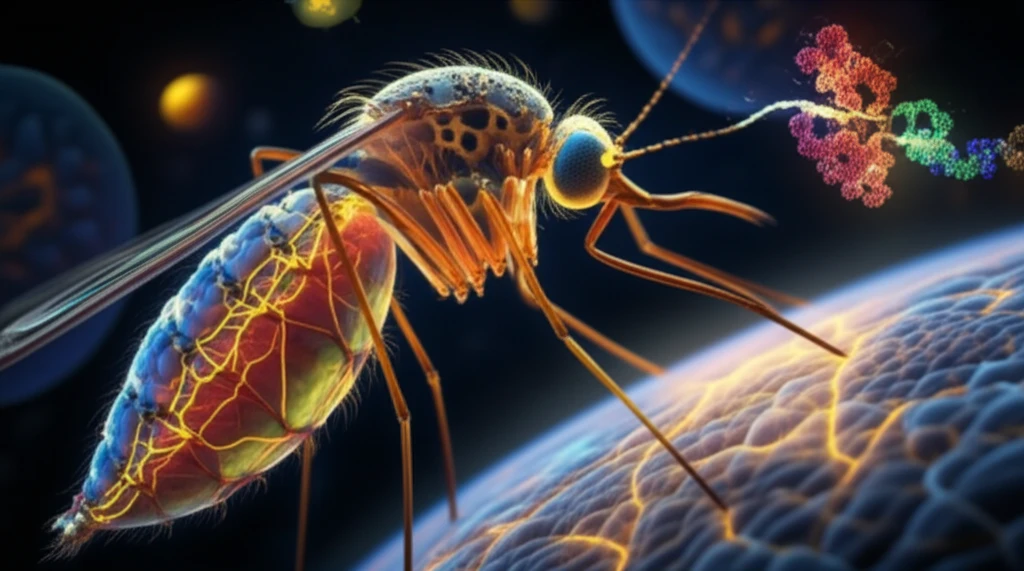
Mosquitoes' Secret Weapon: How Juvenile Hormones Control Blood-Digesting Enzymes
"Unraveling the Connection Between Hormones and Trypsin Production in Mosquitoes Could Lead to Novel Pest Control Strategies"
Mosquitoes are more than just a summertime nuisance; they are vectors of serious human diseases like malaria, dengue, and yellow fever. Female mosquitoes require a blood meal to produce eggs, and this process depends on their ability to digest blood efficiently. Enzymes called trypsin and chymotrypsin are key players in this blood-digestion process, breaking down proteins into amino acids that are then used to create eggs.
For decades, scientists have been studying the intricate processes that govern trypsin production in mosquitoes. Early research identified two distinct phases of trypsin production: an initial phase that relies on existing trypsin transcripts and a later phase that involves the creation of new transcripts. Researchers have also discovered that factors like blood meals, sugar intake, and hormones can influence trypsin production.
Now, a groundbreaking study sheds new light on the role of juvenile hormones (JH) in regulating the production of trypsin. The research, published in Archives of Insect Biochemistry and Physiology, reveals that JH not only influences the amount of trypsin produced but also controls the splicing of the messenger RNA (mRNA) that carries the instructions for making trypsin. This discovery opens new avenues for developing targeted mosquito control strategies.
The Discovery: JH's Role in Splicing Early Trypsin mRNA

The research team, led by Dov Borovsky, Robert G. Hancock, Pierre Rougé, Charles A. Powell, and Robert G. Shatters Jr., focused on Culex quinquefasciatus, a common mosquito species. They discovered that juvenile hormone III (JH III), a key hormone in insect development and reproduction, plays a critical role in the splicing of early trypsin mRNA.
- In the absence of JH III, the early trypsin mRNA remains unspliced.
- This unspliced transcript is linked to RNA ribonucleoproteins (RNPs).
- When JH III levels are high (typically after a sugar meal), the pre-mRNA transcript converts into a spliced transcript.
- This splicing process is essential for producing functional trypsin.
New Avenues for Mosquito Control
These findings open exciting new possibilities for mosquito control. By understanding how JH III regulates trypsin production, scientists can explore strategies to disrupt this process and prevent mosquitoes from digesting blood. This could lead to the development of novel insecticides or other control methods that specifically target the hormonal regulation of trypsin production. Further research is needed to fully understand the intricacies of JH III signaling and its impact on mosquito physiology, but this study provides a significant step forward in the fight against mosquito-borne diseases.
